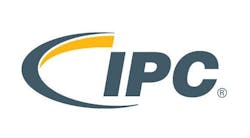IPC: New U.S. tariffs on Mexican imports would harm U.S. electronics companies, customers
BANNOCKBURN, IL—IPC, a global trade association for the electronics industry, supports the Trump administration’s efforts to pass the U.S.-Mexico-Canada Agreement (USCMA), but believes the imposition of new tariffs on Mexican imports to address immigration issues at the U.S.-Mexico border will harm U.S. electronics companies and their customers.
“New and escalating tariffs would make it harder and more costly for electronics companies and their customers to operate in the United States and add to already-heightened economic uncertainties,” IPC president and CEO John Mitchell said. “Placing tariffs on Mexican imports would essentially be a new tax on U.S. companies that have invested in North American supply chains and would weaken their ability to compete globally in an industry notorious for thin margins."
According to a new report commissioned by IPC to examine the proposed USCMA, U.S. electronics manufacturers and their customers have developed extensive North American supply chains over the last 25 years. These supply chains, which leverage the strengths of all three countries, have allowed U.S. manufacturers to grow domestically and better compete internationally.
Among its findings, IPC’s report noted:
- Bilateral trade between the United States and its North American counterparts is now six times larger than it was prior to NAFTA.
- The total value of U.S. electronics trade with Canada and Mexico was $155.5 billion in 2017.
- Electronics are a large share of U.S. exports to Mexico and Canada: 31 percent of all U.S. exports of manufactured goods, natural resources and energy exports to Mexico, and 18% of such exports to Canada.
- Within the computer and electronics product manufacturing sector, inter-firm trade between the U.S. and Mexico is significant. Approximately 78% of all electronics imported from Mexico and 47% of all electronics exported to Mexico are between parent companies and their affiliates.
- Mexico imports 34% of U.S. printed circuit board production—larger than the next four largest markets combined.
IPC also believes the proposed tariffs would complicate efforts to win approval for USMCA in Congress.


